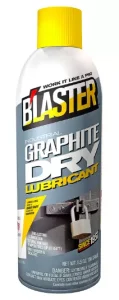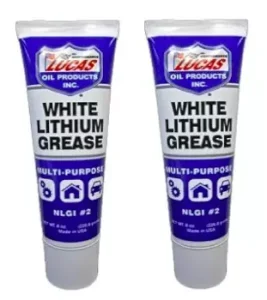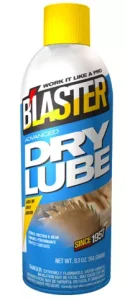Best Lubricants for Nerf Guns
To keep your Nerf gun performing at its best, it’s essential to maintain and lubricate it regularly. Choosing the right one, such as silicone-based, white lithium grease, teflon lubricants, or dry ones, can significantly improve the performance and longevity of Nerf gun.
Remember to follow proper lubrication techniques and avoid common mistakes to ensure optimal functionality. By maintaining your Nerf gun, you can continue enjoying thrilling battles for a long time to come.
List of Best Nerf Gun Lube
When selecting a lubricant for your Nerf gun, it’s essential to consider a few factors. The ideal lubricant should have excellent viscosity, provide long-lasting protection, and be safe for use on plastic surfaces. Below are some popular options
Silicone Based Lubricants
These are a popular choice for fixing Nerf guns due to their excellent lubricating properties and compatibility with plastic. They offer a smooth and consistent coating that reduces friction, ensuring seamless dart firing. They also provide corrosion protection, extending the lifespan of your Nerf gun.
White Lithium Grease
White lithium grease is another viable option for lubricating Nerf guns. It has a high melting point and adheres well to surfaces, making it ideal for gears and moving parts. White lithium grease provides long-lasting lubrication, reducing wear and tear and preventing jamming issues.
PTFE Lubricants
These are commonly known as Teflon lubricants, offer excellent lubrication and reduce friction effectively. They have a low coefficient of friction, ensuring smooth movement of components within the Nerf gun. They also provide water resistance and protect against corrosion.
Dry Lubricants
Graphite powder or molybdenum disulfide, are suitable for Nerf guns that require minimal lubrication. They do not attract dust or debris, ensuring a cleaner operation.
These are often used in specific components, such as trigger mechanisms, to prevent them from becoming sticky.

Why Lubrication is Important for Nerf Guns?
Proper lubrication is crucial for maintaining the optimal performance of Nerf guns. Over time, dust, dirt, and debris can accumulate within the mechanisms, causing friction and hindering smooth operation.
Lubricating the moving parts reduces friction, prevents wear and tear, and ensures consistent firing power.
How to Lubricate a Nerf Gun?
Proper lubrication involves applying the lubricant to specific parts of the Nerf gun. Here’s a step-by-step guide to help you lubricate your Nerf gun effectively:
- Disassemble the Nerf Gun: Start by disassembling the Nerf gun to access the internal components that require lubrication.
- Clean the Parts: Before applying any lubricant, make sure to clean the nerf gun components with a soft cloth or brush to remove any dirt or debris.
- Apply the Lubricant: Depending on the type of lubricant you’re using, apply a small amount to the moving parts, gears, and springs. Be mindful not to over-lubricate, as excess lubricant can attract dust and cause clogging.
- Reassemble the Nerf Gun: Once you’ve applied, carefully reassemble the Nerf gun, ensuring all parts are securely in place.
Common Mistakes to Avoid
While lubricating your Nerf gun, it’s important to avoid some common mistakes that can affect its performance. Here are a few things to keep in mind:
- Using WD-40: WD-40 is not recommended for lubricating Nerf guns as it can damage the plastic components and cause them to become brittle.
- Over-lubricating: Excessive apply can lead to dust and debris buildup, affecting the performance of the Nerf gun.
- Using the Wrong One: Using inappropriate lubricants, such as petroleum based ones, can cause damage to plastic parts and compromise the functionality of the Nerf gun.
Conclusion
FAQs

I am a Nerf gun fan, researcher and modder. I post reviews about Nerf blasters and also share tips to solve issues with your toy guns.









One Comment